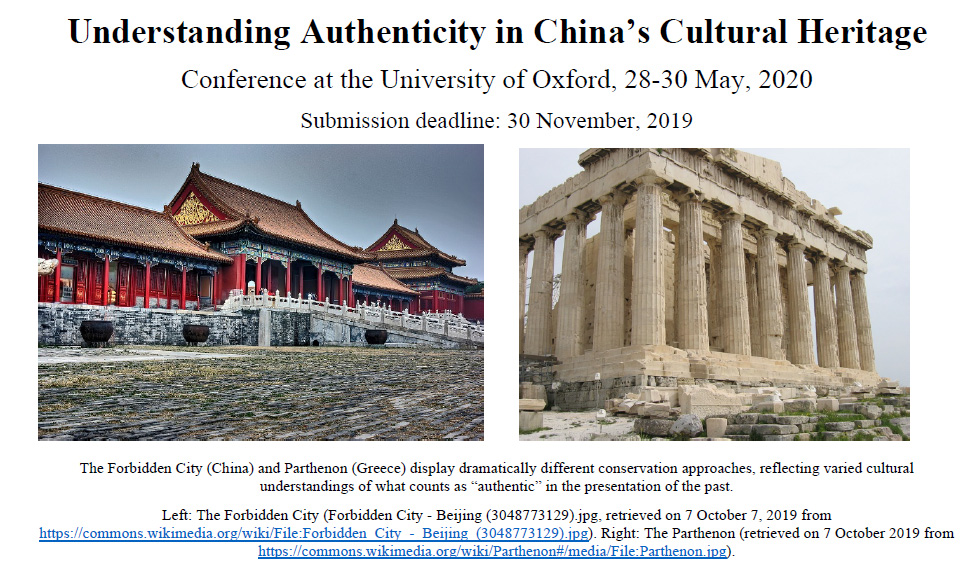What we deem to be genuine or fake is not an objective determination, but something that we agree upon as communities. Debates about authenticity, moreover, are often intimately bound to question who owns the past and its representation. Please join us at Oxford on May 28th-30th, 2020, for a discussion on the construction of “authenticity,” both historically and today, in relation to China’s cultural heritage (those objects and texts concerned with China’s past). Applications are now invited for the presentation of papers (~20-30 minutes in length) on this theme.
Questions to consider include, but are not limited to: How do standards for authenticity change in time, space, and between various object- or text-types in China, and why? Who arbitrates what counts as authentic, and from where does that authority stem? Who made forgeries, how did they circulate, and what was their economic effect? How has forgery been used to contest ownership of the past, to enact political protest, or push intellectual programs? How do current anxieties over authenticity impact the management of China’s cultural heritage today? We warmly welcome applications by any interested parties, regardless of professional background, including but not limited to university scholars, museum curators, antiquities dealers, art lawyers, and collectors.
Please submit a presentation title, short abstract (150-400 words), as well as your name and affiliation to understandingauthenticity@gmail.com on or before Saturday, 30 November, 2019.
**“Understanding Authenticity in China’s Cultural Heritage” is generously sponsored by Oxford University’s Knowledge Exchange Seed Fund, TORCH Heritage Seed Fund, The British Academy, The Leverhulme Trust, Oxford China Centre, St. Hugh’s College, and Pembroke College.**

